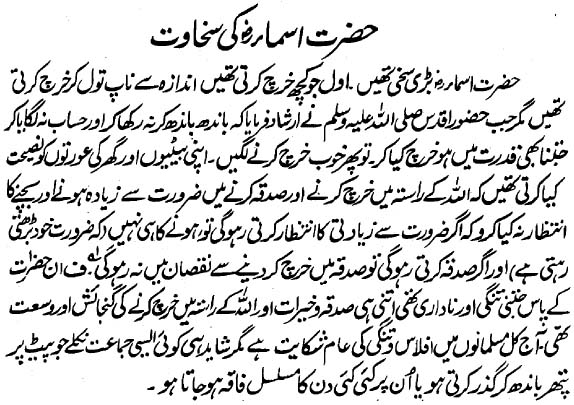
Hazrat Asma RA Ki Sakhawat
TAG: Sahaba
Asma bint Abu Bakr RA Ki Zindgi Aur Tangi
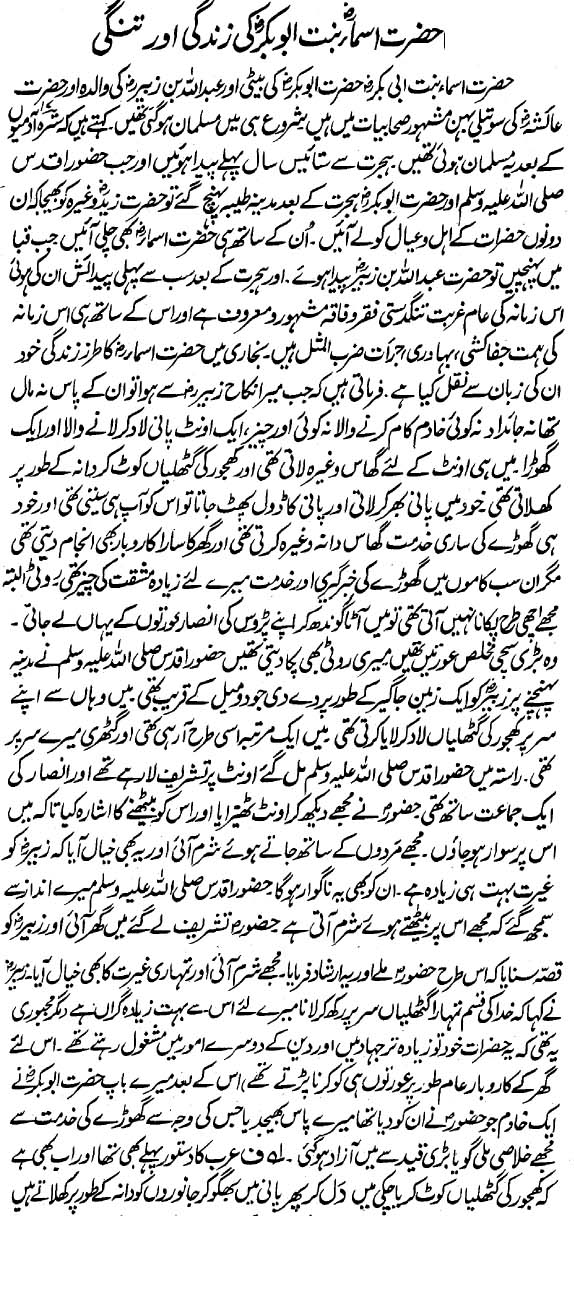
Asma bint Abu Bakr RA Ki Zindgi Aur Tangi
Sumayyah (RA) Umm Ammar RA Ki Shahadat
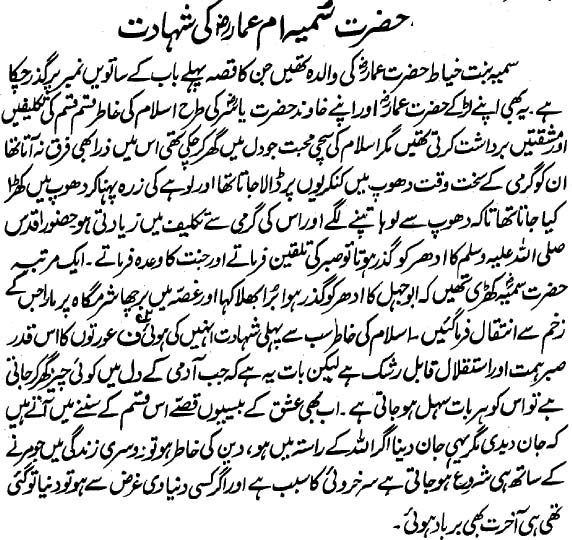
Sumayyah (RA) Umm Ammar RA Ki Shahadat
Hazrat Umm Amarah RA Ka Islam Aur Jang Mein Shirkat
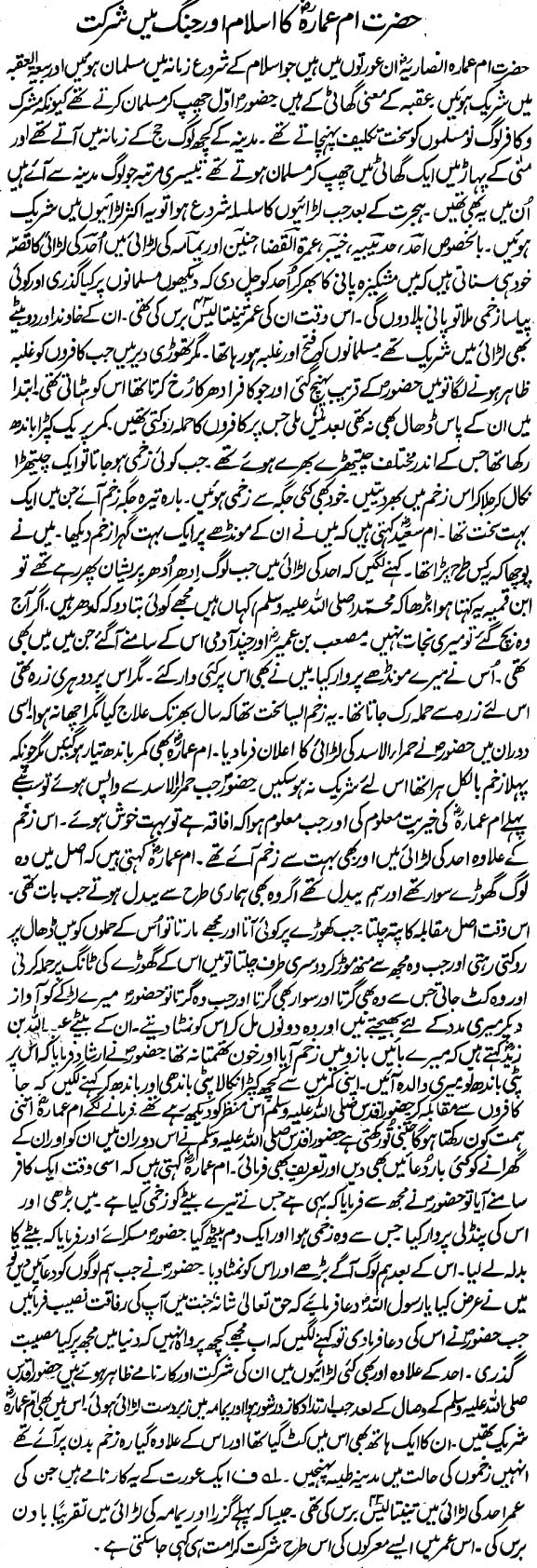
Hazrat Umm Amarah RA Ka Islam Aur Jang Mein Shirkat
Hazrat Safia RA Ka Yahoodi Ko Tanha Marna
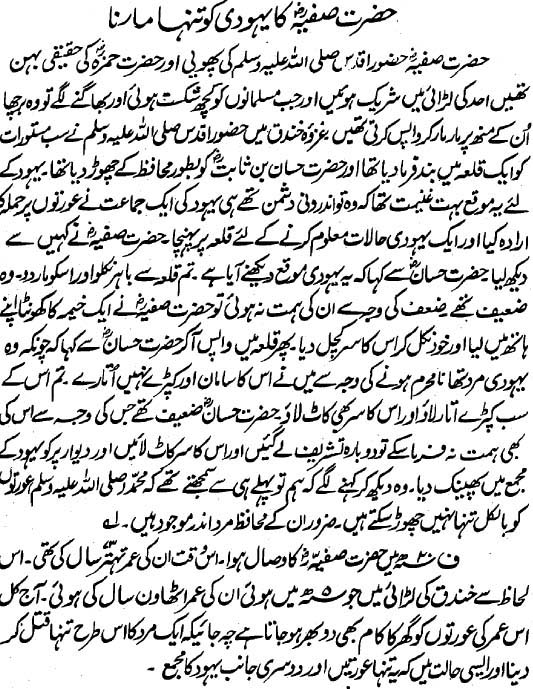
Hazrat Safia RA Ka Yahoodi Ko Tanha Marna
Al-Khansa RA Ki Apne Charo Betoon Kay Sath Jang Mein Shirkat
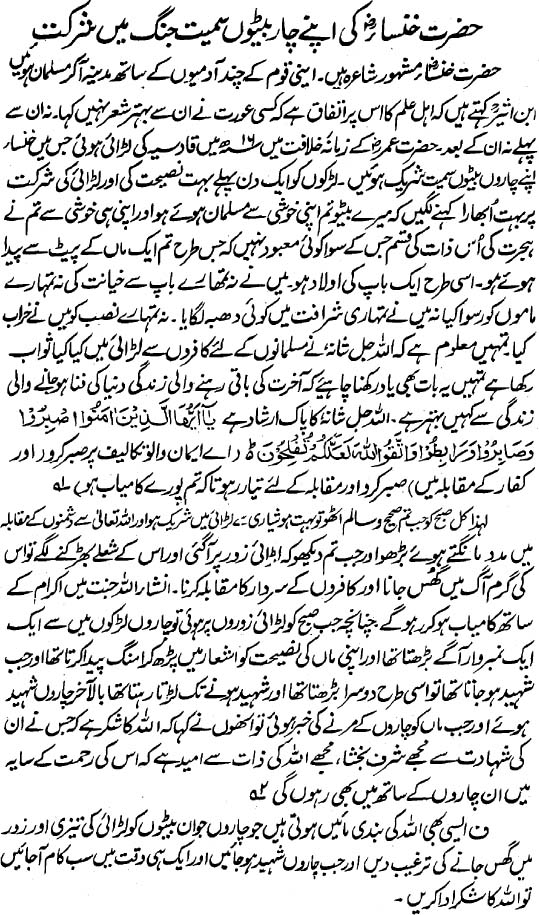
Al-Khansa RA Ki Apne Charo Betoon Kay Sath Jang Mein Shirkat
Hazrat Asma RA Ka Auratoon Kay Ajar Kay Mutaliq Sawal

Hazrat Asma RA Ka Auratoon Kay Ajar Kay Mutaliq Sawal
Ali RA Ka Zikr Aur Ali RA Kay Chehre Ko Dekhna Ibadat

Ali RA Ka Zikr Aur Ali RA Kay Chehre Ko Takna Ibadat
Hazrat Umme Saleem RA Ka Larke Kay Marnay Per Amal

Hazrat Umme Saleem Ka Larke Kay Marnay Per Amal
Umm Haram RA Ki Ghazwa Behar Mein Shirkat Ki Tamanna

Umm Haram RA Ki Ghazwa Behar Mein Shirkat Ki Tamanna

